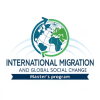Program Overview
Faculty: Faculty of Sociology and Psychology (Department of Sociology)
Field of study: Social sciences
The university study cycle: Master (2 years)
Awarded title: Master degree in Sociology
Accreditation information: 120 ECTS (European Credit Transfer and Accumulation System)
Language of instruction: English
Maximum number of seats: 50
Annual tuition fee: EU students 5600 RON; NON-EU students €1980
Study Spotlights
1. Foundations of Migration Studies
- Geography of Mobilities – Provides a spatial understanding of migration patterns.
- Patterns of Mobility and Social Change in Eastern Europe, Middle East, Maghreb, and Southeast Asia – Analyzes migration trends in key global regions.
2. Migration Policies and Governance
- EU Policies on Asylum and International Protection – Key for understanding European migration frameworks.
- Local Migration Management, Social Mobilizations, and New Citizenship – Explores integration strategies at the local level.
- Policies and Systems for Migrants’ Inclusion in the European Union – Studies policy mechanisms for social inclusion.
3. Research and Data Analysis
- Data-Driven Analysis of Migration – Focuses on quantitative approaches in migration research.
- Qualitative Research Methods in the Field of International Migration – Essential for sociological and anthropological insights.
- Network Analysis in Migration Studies – Examines migrant networks and social connections.
4. Socio-Economic and Political Aspects of Migration
- Global Market Networks and Labor Migration – Analyzes labor migration and economic globalization.
- Crisis Management, Climate Change, and Forced Displacement – Critical for understanding climate-induced migration.
- Gender, Racism, and Migration – Investigates intersectional issues in migration.
- Populism, Nationalism, and Immigration Ethics – Explores political responses to migration.
5. Practical and Professional Training
- Professional Practice & Labor Market Integration Lab – Prepares students for careers in migration-related fields.
- Theoretical and Empirical Research Practice for the Dissertation – Develops independent research skills.
Follow your career
- Migration Policy & Government – Immigration Policy Officer, Regional Development Specialist, Public Administration in Migration Affairs.
- International Organizations & NGOs – UN/IOM/NGO Migration Specialist, Human Rights Officer, Humanitarian Aid Worker.
- Academic & Research – Migration Researcher, University Lecturer, Social Policy Analyst.
- Business & Private Sector – CSR & Diversity Consultant, Transnational Business & Labor Migration Specialist.
Ideal Candidate profile:
The ideal candidate for the Master’s program in International Migration and Global Social Change is an intellectually curious, socially engaged individual with a strong interest in understanding and addressing the complex global dynamics of migration. This candidate should possess:
Academic Background
- A completed undergraduate degree in sociology, political science, international relations, social work, anthropology, law, economics, or related fields within the social sciences.
- Solid academic performance, critical thinking skills, and the capacity for analytical and interdisciplinary research.
Skills and Competencies
- Strong communication and interpersonal skills, with the ability to work collaboratively in multicultural and interdisciplinary environments.
- Basic digital literacy and openness to using data-driven research tools.
- Demonstrated ability to analyze social issues, formulate problem-solving strategies, and engage with community-based challenges.
- Proficiency in English, as the program is delivered in English.
Personal Attributes
- A commitment to human rights, social equity, and cultural diversity.
- Motivation to engage with complex themes such as migration policy, social integration, and transnational citizenship.
- Sensitivity to intercultural communication and a desire to work with vulnerable or marginalized populations.
Professional Aspirations
- Interest in a career in international organizations (e.g., UN, IOM, UNHCR), governmental and non-governmental sectors, public policy, or academia.
- Willingness to contribute to solutions in areas like humanitarian crisis management, migration governance, and social inclusion.
Additional Advantages
- Previous volunteering or work experience in fields related to migration, community development, or human rights.
- An interest in research and policy-making, with a potential plan to continue with doctoral studies or applied social research projects.

